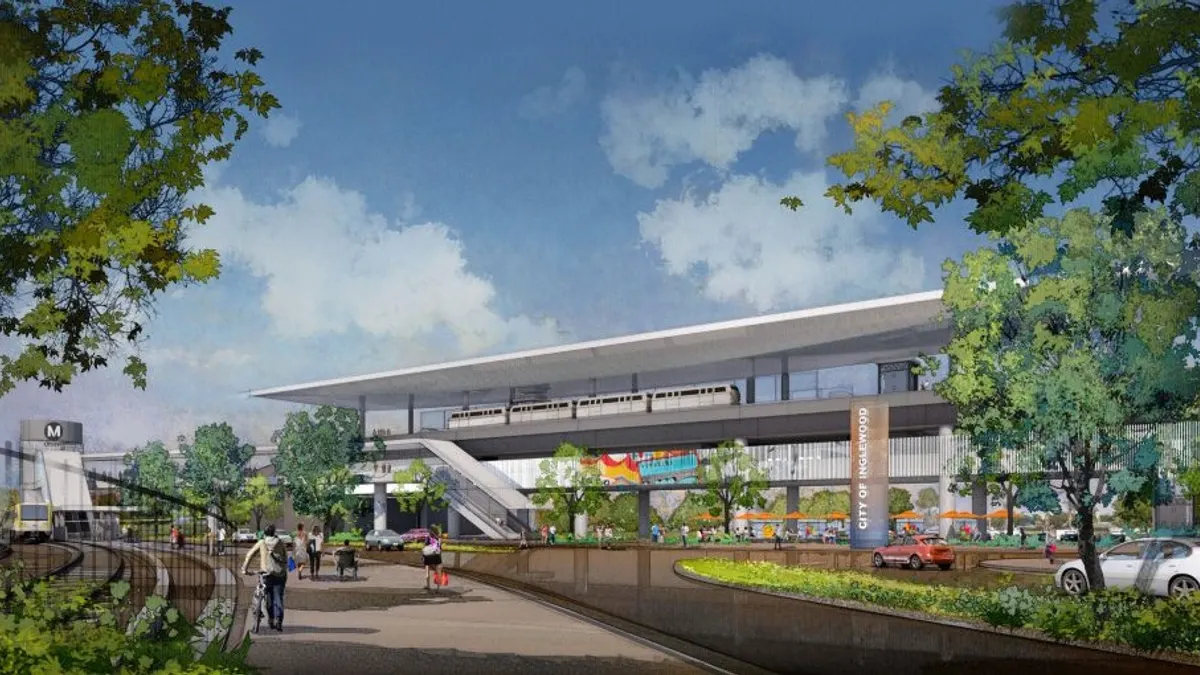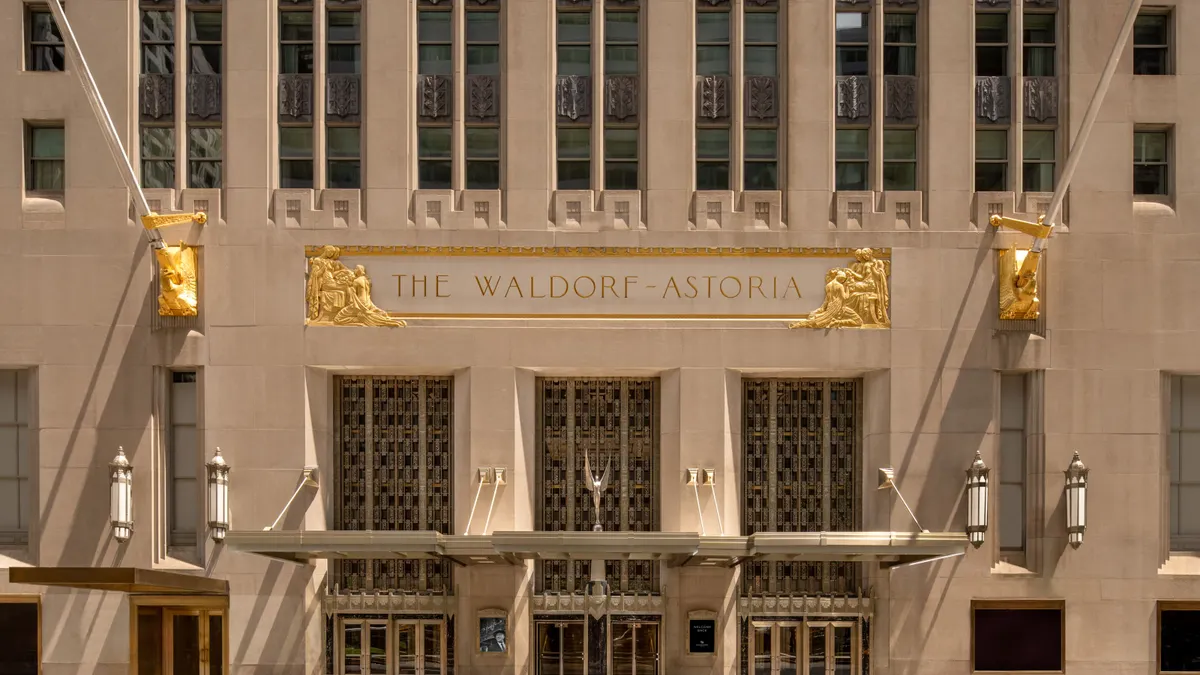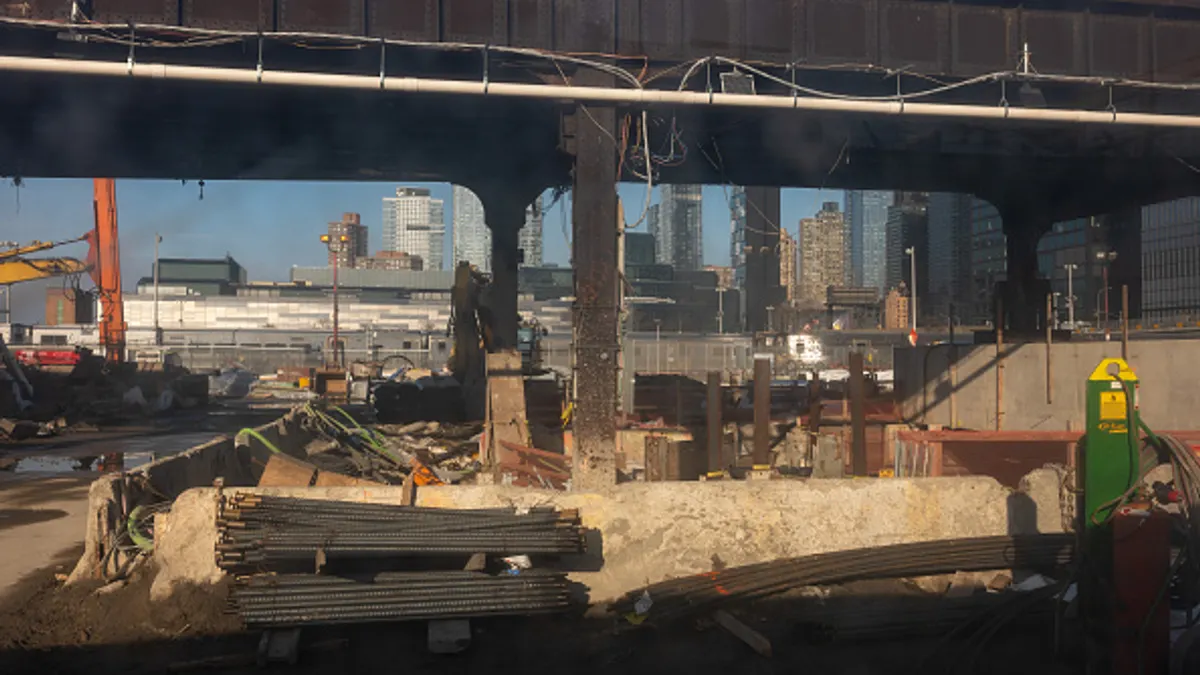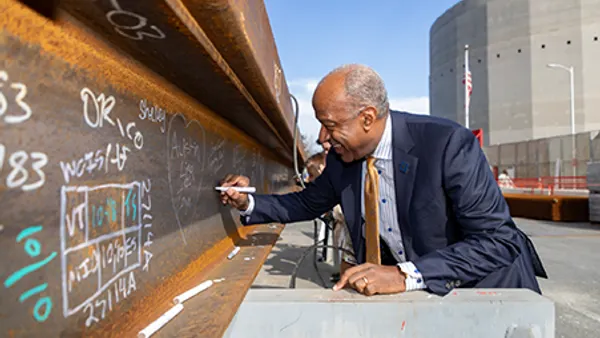Dive Brief:
- The Inglewood people mover project in Los Angeles has now officially been waylaid, with a new plan pushing out the original vision for the $2.4 billion project until after the 2028 Olympics, if it moves forward at all.
- Inglewood City Council released a blueprint of its now phased approach to its Transit Connector Project on April 22, after opposition from local businesses, including the owners of the Los Angeles Rams and Clippers, as well as Rep. Maxine Waters, stopped the original people mover in its tracks last year, according to news channel KTLA 5.
- The new plan recasts the project from an elevated, automated light-rail initiative to smaller-scale improvements including dedicated bus and bike lanes ahead of the Olympics, according to a city news release.
Dive Insight:
“With the world watching us as we prepare to host the 2028 Olympics, we’re also looking inward — listening to our community and taking strategic steps to deliver on what matters most to the people who live and work here,” said Inglewood Mayor James T. Butts, in the city’s news release. Inglewood is an incorporated city within the greater Los Angeles metropolitan area.
In revising its plan, the city council approved a new, $34 million contract with Tutor Perini-led Elevate Inglewood Partners, the design-build consortium on the deal, to reassess its scope.
“This updated and phased approach to the ITC is our response to what we’ve heard: a desire for traffic relief and improved quality of life, connected and walkable neighborhoods, and a revitalized downtown reflecting Inglewood’s existing vibrant culture,” Butts said in the release.
The phased approach will leave open the possibility of continuing to move forward with the people mover after the Olympics, the city said.
Last July, the city named Elevate Inglewood Partners as the best value proposer for the originally envisioned $2.4 billion, 1.6-mile project. In addition to Los Angeles-based Tutor Perini, the public-private consortium includes equity member Plenary Americas US Holdings; lead designer Parsons; automated transit system operator Woojin Industrial Systems; and operations and maintenance contractor Alternate Concepts.
Tutor Perini didn’t immediately respond to a request for comment on the new phased approach.
The automated people mover aspect of the job was effectively killed last fall, when the owners of the NFL’s L.A. Rams and NBA’s L.A. Clippers, as well as Waters, put up roadblocks against it, according to the Los Angeles Times.
The original plan had already been awarded $1 billion in federal funds during the Biden administration. But the future of those funds is now unclear amid the Trump administration canceling previously awarded grants for other transit projects nationally, according to news channel KTLA 5.















